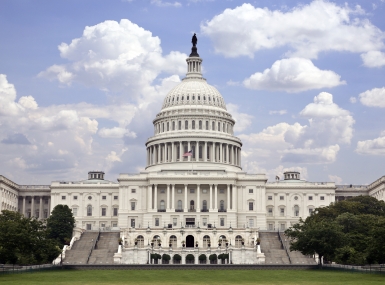Bill to restore the state and local tax (SALT) deduction introduced in 116th Congress
Author

Brett Mattson
Upcoming Events
Related News

Key Takeaways
On January 3, the bipartisan duo of Representative Nita Lowey (D-N.Y.) and Representative Peter King (R-N.Y.) introduced the Securing Access to Lower Taxes by Ensuring Deductibility Act of 2019 (SALT Deductibility Act). The legislation would repeal the $10,000 cap on the SALT deduction established by the Tax Cuts and Jobs Act of 2017 (P.L. 115-97).
The SALT deduction allows taxpayers to deduct state and local taxes paid from their federally taxable income, protecting individuals and families from double taxation and preserving states and local governments’ decision-making authority. By capping SALT deductibility, Congress shifted the intergovernmental balance of taxation and limited state and local control of tax systems. Eliminating the $10,000 cap on SALT deductions would improve counties’ ability to deliver essential public services, such as emergency response, public health services and infrastructure development.
The legislation introduced by Reps. Lowey and King does not include an offset for the cost of repealing the SALT deduction cap. Counties support eliminating the cap on SALT deductions, and NACo will continue to work with Congress to restore the full deductibility of SALT.

Attachments
Related News

County Countdown – Dec. 15, 2025
Every other week, NACo's County Countdown reviews top federal policy advocacy items with an eye towards counties and the intergovernmental partnership.

U.S. Congress passes reconciliation bill: What it means for counties
On July 3, the U.S. Congress passed sweeping budget reconciliation legislation.

U.S. Senate passes amended reconciliation bill text: What it means for counties
On July 1, the U.S. Senate narrowly passed their version of sweeping budget reconciliation legislation.